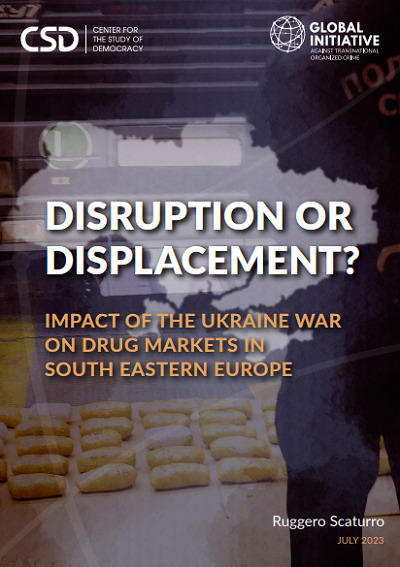Recent studies conducted by the Global Initiative Against Transnational Organized Crime (GI-TOC) and the United Nations Office on Drugs and Crime (UNODC) reveal the impact of the Ukraine war on drug markets in South Eastern Europe.
 The conflict has disrupted existing drug trafficking routes, potentially exacerbating regional instability and creating new opportunities for local and foreign drug traffickers. The study highlights the displacement of drug production and trafficking hubs towards the western borders of Ukraine, as well as the implications for drug flows and market dynamics in the region.
The conflict has disrupted existing drug trafficking routes, potentially exacerbating regional instability and creating new opportunities for local and foreign drug traffickers. The study highlights the displacement of drug production and trafficking hubs towards the western borders of Ukraine, as well as the implications for drug flows and market dynamics in the region.
The war in Ukraine has led to temporary disruptions in traditional drug trafficking routes, including the flow of opioids from Afghanistan and the cocaine route from Latin America to the port of Odesa. However, alternative routes, such as the Balkan route, have experienced intensified activity. The overwhelmed border security management between Ukraine and neighboring countries provides opportunities for criminals to operate and manage their illicit businesses in South Eastern Europe, facilitated by document forgery and investment-based acquisition of ‘golden’ passports.
This report by GI-TOC and UNODC offers an assessment of emerging trends in drug flows and provides insights into seizures and the impact of the Ukraine war on drug prices, purity levels, and perceived quality. With the strategic location of the region between East and West and its proximity to the conflict, the study highlights the vulnerability of South Eastern Europe to the effects of the war on drug traffickers’ operations and trafficking routes.
About Global Initiative Against Transnational Organized Crime (GI-TOC):
The Global Initiative Against Transnational Organized Crime is a network of global experts working to combat transnational organized crime and strengthen international responses to this threat. Through research, advocacy, and partnerships, GI-TOC aims to foster innovative solutions and promote effective policies to tackle organized crime globally.
Link to full report and detailed findings: https://globalinitiative.net/analysis/ukraine-war-impact-drug-markets-south-eastern-europe/
















